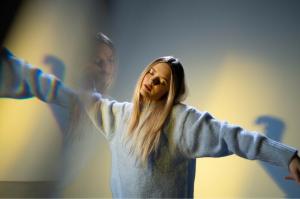What drugs can cause flashbacks?
One of the experiences that is most associated with drugs in popular culture is the ability to generate hallucinations in those who consume them. It is true that not all psychoactive substances included in this category are capable of producing these effects, but those that are have this property are an example of the extent to which introducing molecules capable of coupling to our neurons into our brain can give rise to abnormal experiences, which significantly modify the way in which we relate to reality and to everything we took for granted. sitting.
However, many times these types of alterations do not only occur during the minutes following the consumption of the drug. Sometimes they occur much later, and an example of this is the experiences known as flashbacks. In this article we will see what they are and what drugs can produce flashbacks for several hours after taking them.
- Related article: "Hallucinations: definition, causes, and symptoms"
What are flashbacks and hallucinations?
In the context of the world of mental health and psychiatry, flashbacks are perceptual disturbances that lead the person to
repeatedly reliving experiences with a strong sensory and emotional charge, as if it were occurring in the present, despite the fact that they are actually caused by the intense recall of content stored in the subject's memory. In most cases, these experiences are distressing and/or disturbing, so they can damage the quality of life of those who suffer from flashbacks. In fact, this is one of the typical symptoms of post-traumatic stress disorder.But not all flashbacks are rooted in trauma; some are caused by the experience of having consumed a drug capable of distorting the perception of things, a set of psychoactive substances that we usually call hallucinogenic drugs (or that can have the effect of hallucinations).
What are the characteristics of hallucinogenic drugs? In reality, beyond the fact that they give rise to these kinds of psychological and perceptual effects, they don't have much in common.
And it is that there are several mechanisms through which a psychoactive substance can distort our perception of things; in our brain there is no kind of switch that activates the appearance of hallucinations, but a set of nerve cells working together with more or less success in trying to provide us with relatively reliable information about what is happening around us, and whose tasks are sometimes hampered by drugs. And since that network of neurons that coordinate can be influenced by drugs in many ways (for example, each one of them has many different types of of receptors that capture neurotransmitters or possible molecules originating from drug use), there are different ways in which hallucinations can Appear.
Of course, they all have in common that they affect the parts of the brain responsible for processing sensory information and combining it, giving rise to the experience of a "whole" with meaning; these are distributed mainly in the parietal, frontal and temporal lobes of the brain.
- You may be interested: "Parts of the Human Brain (and Functions)"
How do flashbacks come about?
Now, this division of tasks of different brain structures is only relative, because in the In practice, the entire brain functions as a unit, with all its parts trying to tune in with the rest.
That is why at the moment of truth, the parts of the brain in charge of processing the information that comes from the senses work hand in hand with, for example, networks of neurons specialized in the functioning of memory; Ultimately, what we learn about previous experiences determines how we interpret what we see, touch, hear, etc.
This is where the reason for flashbacks produced by drugs lies: some substances produce an alteration both in the cells linked to perception as in those associated with the previous ones that are responsible for "filing" and evoking memories. Y hallucinogenic experiences are usually intense enough to remain marked in our minds.

In this way, some drugs cause altered perception to alter our memory and vice versa, in a vicious circle that, because it is based on this mutual feedback, it can last longer than the other effects of substance use psychoactive. And while it's true that in most cases flashbacks go away on their own in a matter of days, sometimes they can make the person feel that she has been "stuck" in that experience by repeating itself over and over again for longer than the normal. And in the worst cases, it can even generate false memories of a traumatic nature.
- Related article: "Types of drugs: know their characteristics and effects"
What types of drugs can give us flashbacks?
As we have anticipated, the majority of drugs capable of producing flashbacks are hallucinogenic, with a few exceptions. Let's see what they are.
1. LSD
LSD is one of the most popular drugs in the context of recreational use in nightlife venues, especially among young people. But it is far from being a harmless drug; it can lead to hallucinations so intense that they put the person in danger if left unsupervised, and it can also leave sequelae.
2. psilocybin
Psilocybin is often considered a "natural" drug because the hallucinogenic compound on which it is based is naturally available in various species of fungi; however, this characteristic does not make it better or worse for health, and it still has the potential to harm the health of the user and/or endanger it.
- You may be interested: "Psilocybin: definition and effects of this component of hallucinogenic mushrooms"
3. Mescaline
The mescaline is a phenylethylamine found mainly in a plant known as peyote and in cacti of the genus echinopsis. Induces a psychedelic state, often associated with visual distortions that consist of seeing geometric and fractal patterns.
4. Ecstasy (MDMA)
The MDMA It is also a drug associated with nightlife, but in this case it does not stand out as much for its hallucinogenic effects; those who take it do so rather because of its way of influencing mood. However, on some occasions it produces hallucinations and flashbacks, and has a certain addictive potential, in addition to damaging the nervous system if consumed very frequently in the medium and long term.
5. cannabis
Cannabis is not particularly known for causing hallucinations, but in some cases it does have this effect. It is not so surprising if we remember that the famous "joints" usually generate delusional type thoughts; hallucinations are a step further in the type of distortion in the way of perceiving reality. In addition, it should be remembered that despite the myth that marijuana does not "hook you", the reality is that it can cause addiction.
- Related article: "Marijuana: Science reveals its long-term effects on the brain"
Do you want to start a treatment process for addictions?
If you are looking for professional help with addictions, get in touch with us.
In APPOINTMENT Clinics We specialize in addictive disorders and we give you the opportunity to go through all the necessary phases to overcome drug use in our residential module.


